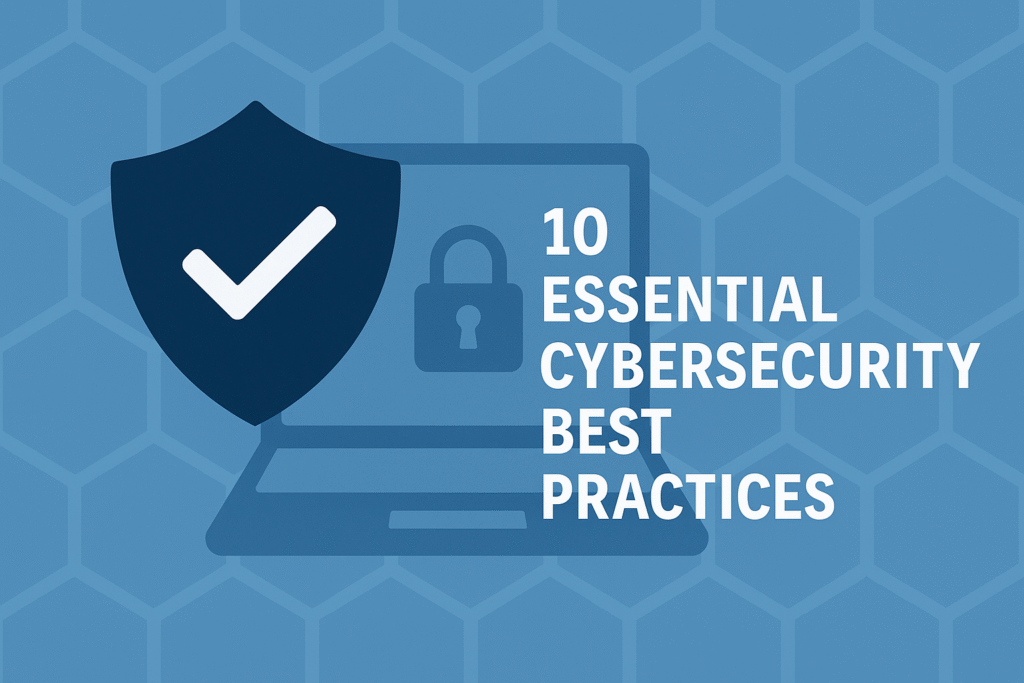10 Essential Cybersecurity Best Practices Everyone Should Follow
Learn the cybersecurity habits that protect your identity, data, and peace of mind at home and at work.

Cybersecurity is no longer a luxury — it’s a necessity. From small businesses in Trinidad to global enterprises, every connected device is a potential target. But that doesn’t mean you need to be an expert to protect yourself.
Here are 10 simple but essential cybersecurity best practices that can protect your digital life.
1. Use Strong, Unique Passwords for Every Account
Never reuse passwords. A data breach on one site can expose your entire digital life.
Tip: Use a password manager like Bitwarden, LastPass, or 1Password to generate and store secure passwords.
2. Enable Multi-Factor Authentication (MFA)
Even if your password is stolen, MFA adds a second step — like a text message or authentication app.
Apps to try: Google Authenticator, Microsoft Authenticator, or Authy.
3. Keep Your Software and Devices Updated
Regular updates fix security vulnerabilities. Don’t delay OS or app updates.
Update regularly: Phones, laptops, browsers, plugins, even smart home devices.
4. Be Wary of Phishing Emails and Messages
If an email looks suspicious — don’t click. Always double-check the sender’s address and look for signs of a scam.
Tip: When in doubt, go to the website directly instead of clicking links.
5. Use Antivirus and Anti-Malware Tools
Free or paid — anything is better than nothing.
Recommended: Malwarebytes, Bitdefender, Windows Defender (built-in on Windows 10+).
6. Don’t Use Public Wi-Fi Without Protection
Public networks are unencrypted and vulnerable to eavesdropping.
Protect yourself: Use a VPN like NordVPN, ProtonVPN, or Surfshark when on public Wi-Fi.
7. Backup Your Data Regularly
Whether it’s ransomware, accidental deletion, or hardware failure — backups can save you.
Strategy: Follow the 3-2-1 rule: 3 copies, 2 types of storage, 1 offsite.
8. Lock Your Devices When Not in Use
Whether it’s your laptop or smartphone, don’t leave devices unattended and unlocked.
Set automatic locks: 30 seconds to 1 minute is ideal.
9. Be Selective About App Permissions
Only grant permissions necessary for the app to function. A calculator app shouldn’t ask for camera access.
Review permissions: Go to your phone settings and review app permissions regularly.
10. Educate Yourself and Your Team
Cybersecurity is a moving target. Stay informed.
Resources: Follow blogs, attend webinars, and consider awareness training for your staff.
At Let’s Think Wireless, we offer cybersecurity training, audits, and risk assessments for individuals, teams, and businesses. Book a free consultation to secure your digital future.
